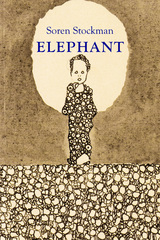
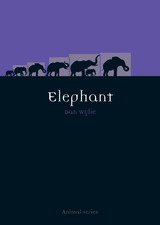
The image of the elephant can be found throughout world cultures as a symbol of intelligence, strength, and loyalty. Wylie draws on a rich array of examples to document that symbolic power, ranging from symbols of the Hindu god of wisdom, Ganesh, to the beloved children’s works Dumbo and Babar the Elephant.
Turning to the elephant’s biological history, Wylie describes the three remaining species—the African Bush Elephant, African Forest Elephant, and the Asian Elephant—and the controversial efforts for elephant conservation. With ivory poaching and human encroachment into the animal’s natural habitats, Wylie argues that we face a uniquely poignant conservation crisis in which elephants and humans both unsustainably consume limited natural resources.
A compelling new entry in the Animal series, Elephant will be necessary for every animal lover’s bookshelf.

A Seminary Co-op Notable Book
A BBC Sky at Night Best Book
“An impressively comprehensive bird’s-eye view of a research topic that is both many decades established and yet still at the very cutting edge of astronomy and physics.”
—Katie Mack, Wall Street Journal
“Schilling has craftily combined his lucid and accessible descriptions of science with the personal story of those unlocking the finer details of the missing mass mystery. The result is enthralling…A captivating scientific thriller.”
—BBC Sky at Night
“Fascinating…A thorough and sometimes troubling account of the hunt for dark matter…You will come away with a very good understanding of how the universe works. Well, our universe, anyway.”
—Michael Brooks, New Scientist
When you train a telescope on outer space, you can see luminous galaxies, nebulae, stars, and planets. But if you add all that together, it constitutes only 15 percent of the matter in the universe. Despite decades of research, the nature of the remaining 85 percent is unknown. We call it dark matter.
Physicists have devised huge, sensitive instruments to search for dark matter, which may be unlike anything else in the cosmos—some unknown elementary particle. Yet so far dark matter has escaped every experiment. It is so elusive that some scientists are beginning to suspect there might be something wrong with our theories about gravity or with the current paradigms of cosmology. Govert Schilling interviews believers and heretics and paints a colorful picture of the history and current status of dark matter research. The Elephant in the Universe is a vivid tale of scientists puzzling their way toward the true nature of the universe.
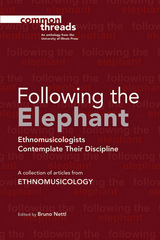
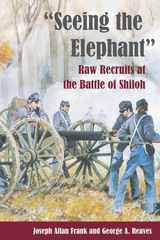
Drawing on the letters, diaries, and other reminiscences of these raw recruits on both sides of the conflict, “Seeing the Elephant” gives a vivid and valuable primary account of the terrible struggle.
From the wide range of voices included in this volume emerges a nuanced picture of the psychology and motivations of the novice soldiers and the ways in which their attitudes toward the war were affected by their experiences at Shiloh.
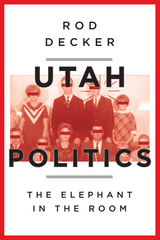
Some themes reoccur: governors become popular by fighting federal oversight— signaling a lingering distrust that Washington could alter the Mormon way of life—and liberals use the court system to circumvent conservative legislatures who see public morality as a defining feature of government. Through this lens, issues both deceptively innocuous and deeply complex underscore Utah’s dance with religious freedom and civil liberty.
READERS
Browse our collection.
PUBLISHERS
See BiblioVault's publisher services.
STUDENT SERVICES
Files for college accessibility offices.
UChicago Accessibility Resources
home | accessibility | search | about | contact us
BiblioVault ® 2001 - 2024
The University of Chicago Press









